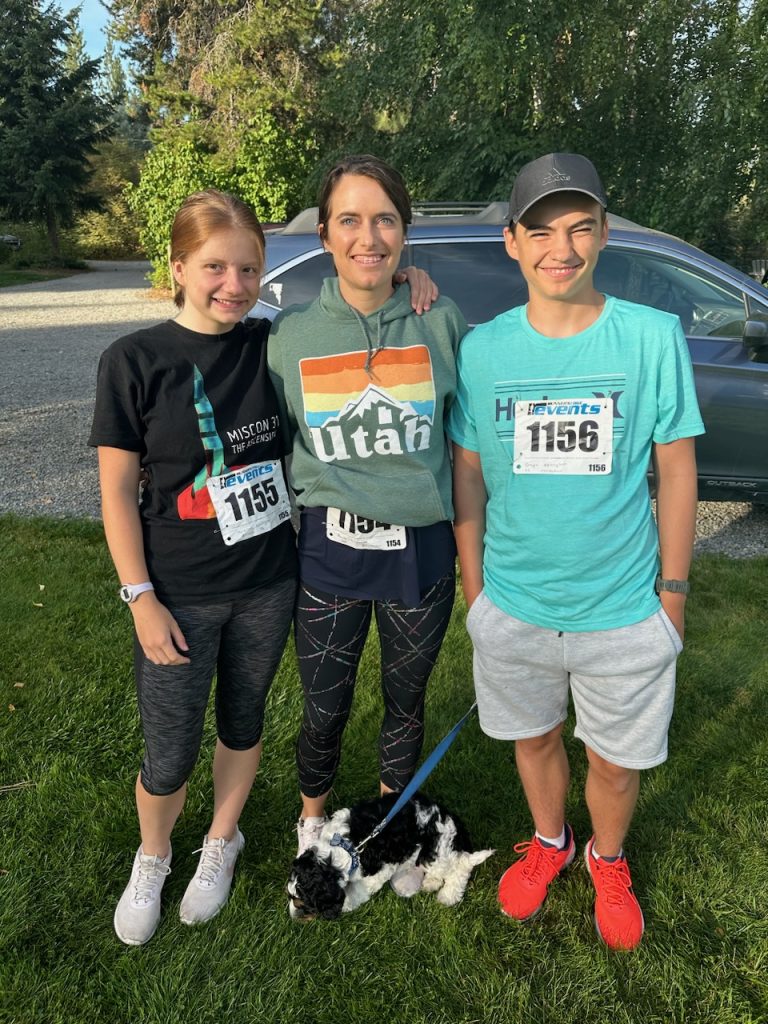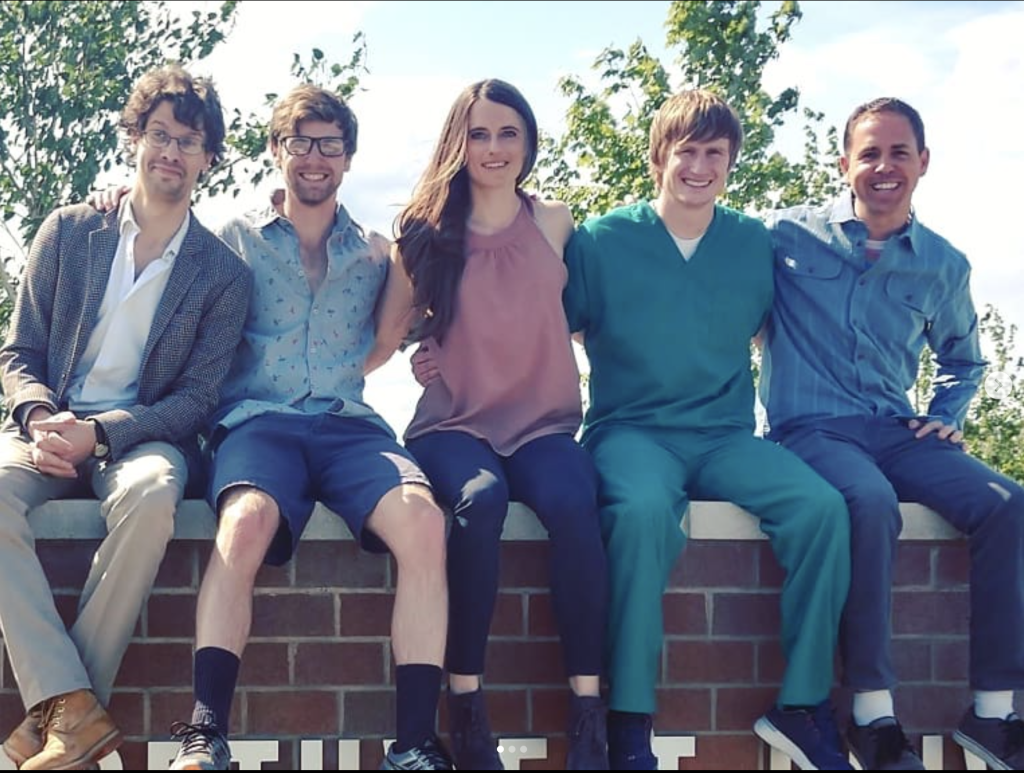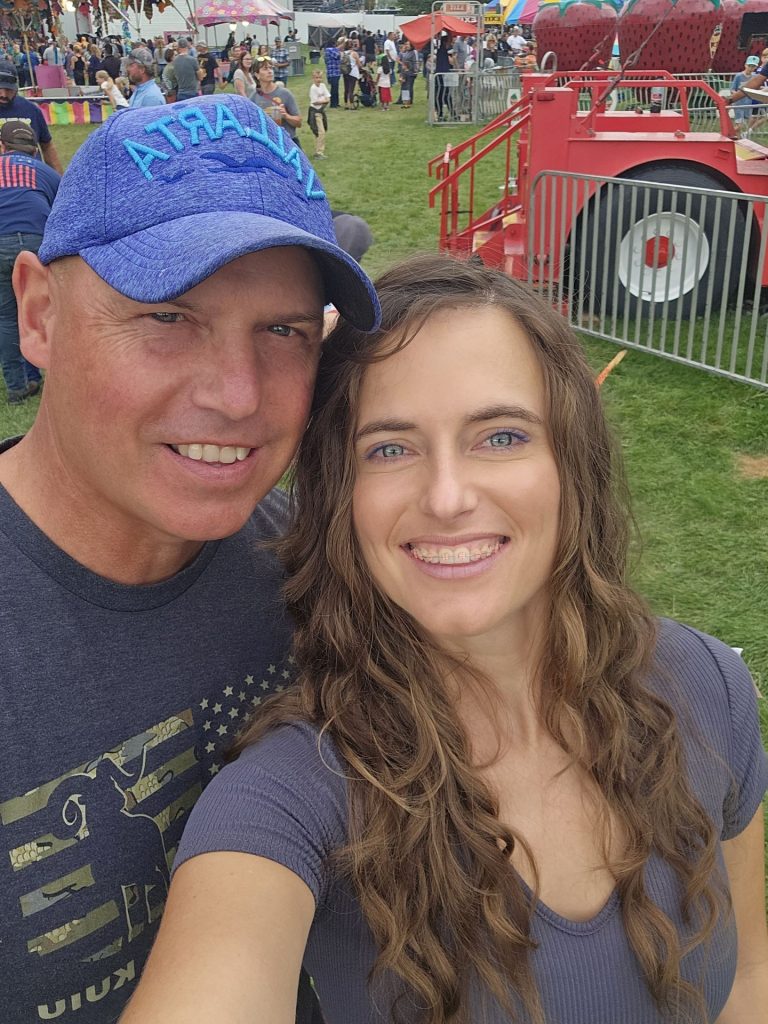Barbara Steward, DO
PNWU-COM Class of 2020
As a primary care physician in her hometown of Plains, Montana, Dr. Barbara Steward is caring for people she’s known forever.
Established as a station for the Northern Pacific Railroad in 1883, Plains once had a longer name: Wild Horse Plains, which referenced Native Americans’ practice of wintering their horses there to feed on the valley’s western wheatgrass. Today, Plains is dubbed “Montana’s poorest town.”
Located at the edge of a state in which 52 of 56 counties are considered medically underserved, Plains has held one constant reputation through it all: it’s full of hard working, resilient, and genuinely good-hearted people.
After a quick Google search, I was eager to explore Plains virtually on the highly-recommended Visit Montana dot-com. With a click, I was blasted with an error page and the words “you’ve taken a path that does not exist.”
No, there wasn’t much to read about Plains online. There was, however, lots to read about the healthcare challenges facing Montana and Dr. Steward’s patients.

In other words, people in places like Plains needed people like Dr. Steward.
Several counties didn’t have a single physician, and the state had the nation’s fourth oldest physician workforce, with approximately 1/3 doctors of the state’s doctors slated to retire soon and add to the shortage.
In other words, people in places like Plains needed people like Dr. Steward.
Thankfully for both parties, Dr. Steward wrote her application letter to PNWU, and ultimately graduated as a first-generation physician in 2020, with a single focus: to bring support, trust, compassion, and assurance back to people in her hometown, and to help people in their most vulnerable and delicate moments, just as her father had done for her and her siblings.
Dr. Steward connected with PNWU to discuss her work as a primary care physician, the immeasurable role her father has played in her journey, and the exceptional neighbors she cares for in Plains.
If you were to introduce me to the patients you care for, who would I meet? Where might we meet?
My patients are exceptional. They possess admirable qualities, and are known for their resilience, kindness, and strong sense of community. They are genuinely good-hearted and hardworking, each hailing from diverse backgrounds with unique stories to share.
They are ranchers, farmers, laborers, local gas station clerks, business owners, teachers, parents, children, retired and other contributing members of the community.
You may run into them at the local grocery store, on a walk with your dog, out in the country, at local businesses, your church, or even in neighboring towns.
Growing up in Plains, was your perspective on medicine and healthcare? What experiences shaped that perspective?
Although I did not visit a physician frequently other than my yearly sports physicals, I understood the critical importance of healthcare access during my upbringing. An incident that reinforced this belief was when my oldest brother, Craig, was involved in a horrific motor vehicle accident at the age of 17.
It was a moment that showcased the indispensable role of the healthcare professionals in our community.
The EMTs and firefighters who extricated him and facilitated his transfer to our local critical care hospital – as well as the physicians, nurses, and other medical personnel at the hospital – were not just skilled individuals; they were volunteers, family friends, and beloved members of our community.
Their swift and expert care in stabilizing Craig before he was life flighted to a larger facility played a pivotal role in his survival.

How has Plains changed over the years? What has stayed the same?
Like any well-guarded treasure, the allure of Plains couldn’t remain hidden for long.
During COVID, our county experienced a surge in population, which furthered our housing challenges. Despite this growth, Sanders County remains one of Montana’s most economically challenged counties, with Plains being dubbed “the poorest town in Montana.”
However, it’s not the economic conditions that draw people here; rather, it’s the promise of a slower, more tranquil way of life.
Those who have joined our community may first witness the rough edges of being a “newcomer,” but surely and happily, they find the camaraderie and spirit of helpfulness that Plains has always been renowned for.
How did PNWU help to prepare you to care for people in rural Montana?
PNWU gave me a chance. They looked at me holistically, saw I wanted to return home, and helped foster that goal throughout my training.
PNWU offered educational opportunities with local underserved populations, reinforced their curriculum to match their mission of returning physicians to rural/underserved areas in the Pacific Northwest, and ultimately returned me home to Montana.

What are some of the unique challenges of providing that care?
Most individuals reside in places like Plains to be secluded. These people are doers, fixers and sometimes it takes an act of God to get them to see a physician. Often when they finally do obtain an appointment, their medical issue has formed into a serious issue.
We are fortunate to have a critical care access hospital in Plains, but even then, many residents can live up to an hour or more away from immediate healthcare.
We depend on volunteer ambulance services to help with initial patient stabilization and transport to our facility. Once arrived at our facility, we have some resources and the ability to manage many issues (especially with our in-house general surgeon and orthopedic surgeon) but, again, do not have the full resources of a larger facility where, depending on the medical concern, we may need to ship them out to.
We generally see transportation and cost concerns in the non-urgent setting when a patient needs to be referred to a specialist. Some of our patients are on fixed incomes and the specialist physicians are located in towns hours away.
What are some of the unique benefits and rewards of the work you’re doing?
I find myself in the position of caring for people I’ve known nearly my entire life.
The interesting duality of growing up in a small town and then returning to practice there is that the community knows you intimately – your successes, your failures, the encouragement they offered, and perhaps even the doubts they once held. They’ve forged unique relationships with you over the years. It’s incredibly fulfilling to give back to the place that played a helping role in shaping who I am today.
While I still hold onto the same core values of integrity, honesty, and a deep desire to give back, it’s undeniable that medicine has transformed me. I’ve evolved. I’m not the same person I once was. Yet, this change doesn’t diminish my connection to my community; rather, I am more capable than before.

Simply put: How does it feel to practice in Plains?
I am thrilled to be back home. My entire goal when starting this journey was to return to Plains. Really, this is my dream come true.
There’s a strong sense of gratification that – through all the hard work, fortitude, late nights, early mornings, long years, missed engagements, and innumerable sacrifices – I have accomplished what I set out to do.
My husband, Ben, has provided unwavering support and love throughout our journey; words can’t do justice to what he means to me, and the feeling of finally settling into our life together is beyond words.
How have others reacted to your return and practice?
For many, it wasn’t a surprise. In fact, for at least the past decade, I’ve been asked when I’d be returning to Plains.
I genuinely sense that my community is excited for me to care for them, and I’ve felt greatly encouraged in my decision to return.
Did you always know this is what you wanted to do? Would you have ever believed you’d be doing this work?
I never imagined going into healthcare or becoming a doctor. Though I’m a first-generation physician, my life circumstances set me up for this career.
I was raised by a single father. He encouraged me in my every endeavor and has been a steadfast confidant. He overcame abundant obstacles to build a better life for his children. Inspired by his profound impact on my life, I pursued a career in medicine with the aim of extending the same unwavering support he provided me to others.
As a physician, I can offer genuine support, trust, compassion, and assurance during people’s most vulnerable and delicate moments.

What should those reading this know about places like Plains? About the healthcare needs of Montana?
I recognize that some Montanans may harbor distrust towards the medical establishment. I firmly believe that fostering transparent and candid communication with patients is paramount in dismantling any lingering mistrust or preconceived notions.
In essence, our shared objectives are clear: to promote and maintain their well-being, ultimately reducing the necessity for frequent medical visits.
What impact do you hope to have on Plains and the people who call it home?
My goal is to offer sincere and comprehensive care.
I am excited to provide OMT, in conjunction with more traditional medicine, to offer my patients a more holistic approach to their care. While I acknowledge that I am not omniscient and might occasionally make errors, I am committed to wholeheartedly engaging in problem-solving and actively listening to my patients.
I aspire to establish a relationship built on trust, characterized not only by compassion, but honesty.
I aspire to establish a relationship built on trust, characterized not only by compassion, but honesty.
Why should those hoping to make a difference in their own hometowns consider joining PNWU?
PNWU has created a collaborative environment for aspiring healthcare professionals.
PNWU’s emphasis on primary care prioritizes community engagement and healthcare in rural/underserved areas, allowing for individuals to make local impacts. The University has a network of encouraging faculty, alumni, and peers who support us, and share our commitments to make a difference in communities across the Pacific Northwest.
And through our rigorous training, we are well-prepared to address the unique challenges of our hometowns.
